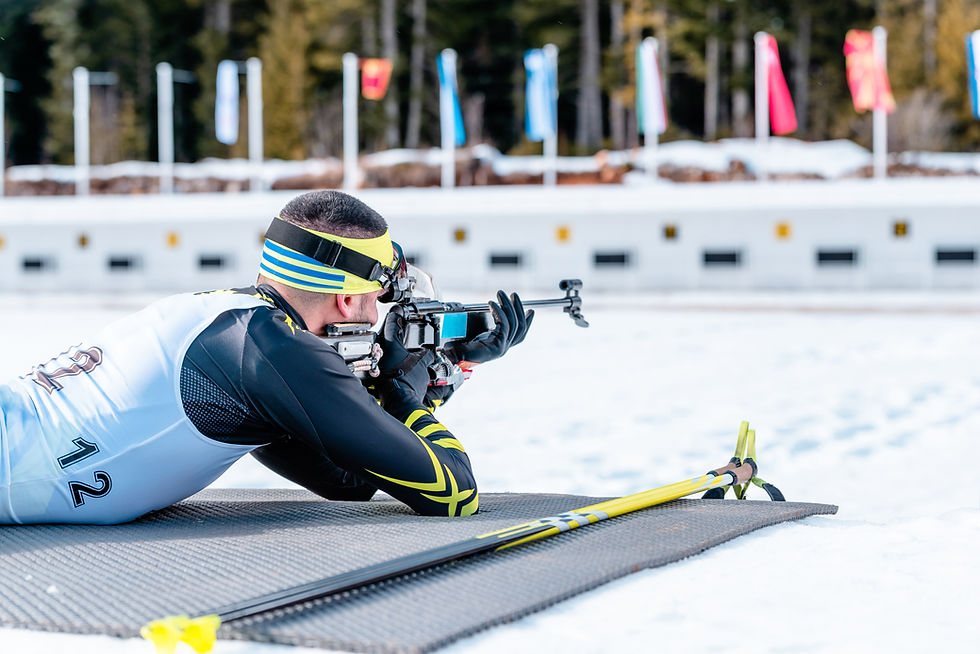5 Sport Psychology Lessons Athletes Can Learn from the Olympics
- Darius

- Aug 15, 2024
- 3 min read
Updated: Jan 23, 2025
The Paris Olympics is done and dusted. We saw some great stories and learned greater sport psychology lessons in the process. The mind is a powerful tool that is key to high performance athletes achieving their Olympic dreams. Here are five key sport psychology lessons that athletes at any level can take away from the Olympics.

The Power of Visualisation
Professional athletes often use visualisation to mentally rehearse their performances. Stephen Nedoroscik, the Pommel Horse expert that people have called the new Clark Kent, at the games was seen imagining himself complete his routine on the pommel horse. This mental rehearsal is a great way of preparing for competition. It builds confidence, focus and helps with emotional control. A great tool to use. This led to Nedoroscik winning a bronze medal.
Start to use visualisation throughout your training programme. Imagine yourself performing excellently, overcoming difficult challenges, being calm and composed, etc. This will help you prepare for so many scenarios.
Embracing Pressure as a Privilege
When you’re performing at the biggest global competition that only comes around every 4 years with millions of people watching you, it unsurprisingly can come with a lot of pressure. But you often see the best athletes are shaken by it. Noah Lyles, the 100m gold medal winner, was relishing the moments leading up to the race. A lot of the drama that comes with such a huge event can bring a lot of negatives, but Noah made it work for him. Whatever attention he got, good or bad, he used it as fuel to prove himself. Now he’s the Olympic 100m gold medal winner.
When you feel pressure in a competition, remind yourself that it’s a chance to prove your skills. Reframe anxiety as excitement and focus on the opportunity rather than the outcome.
Focus on the Process
Olympic athletes are goal-oriented, but they also know that obsessing over results can be counterproductive. Instead, they focus the process, they control the controllables. Adam Peaty, a multi-Olympic medal winner, talks about his focus being on the process, it’s the process that gets you the goals that you want. Focusing on executing each step of their routine, technique, or strategy is more effective than being consumed by thoughts of winning or losing. By concentrating on the process, athletes are more likely to stay present, reduce mistakes, and find flow in their performance.
Set process goals and performance goals alongside outcome goals. For example, focus on your performance routine, sticking to your strategy, or giving 100% effort, regardless of the outcome.
The Importance of Mental Recovery
The physical demands of the Olympics are intense, but the mental demands are equally taxing. Elite athletes prioritise mental recovery just as much as physical recovery. They understand the significance of rest and relaxation, even between small moments during competition. Golfer’s like Tommy Fleetwood will learn to rest and recover between each shot, to keep their energy up for each shot they take. This skill contributed towards his Silver medal in France this year. Recovery techniques can include mindfulness meditation, deep breathing exercises, and quality sleep into a training regimen can improve mental resilience and sustain peak performance.
Schedule regular mental recovery sessions. This can include short meditation breaks, journaling to clear your mind, or engaging in activities that bring you joy outside of sports.
Resilience in the Face of Adversity
Every athlete at all levels will experience setbacks, especially elite athletes. This can be injury, failure or unexpected challenges. What sets champions apart is their ability to bounce back and learn from adversity. Simone Biles, the American gymnastic prodigy, took a break from the sport for her mental health. She made the difficult call of taking a break from the sport to bounce back from adversity. She returned to gymnastics and added more Olympic medals to her collection.
Resilience isn’t just about toughing it out, it’s about adapting, staying committed, and finding motivation even when things don’t go as planned. This mindset allows athletes to recover from disappointments and come back stronger.
When faced with challenges, practice viewing setbacks as opportunities to learn and grow. Reflect on what went wrong, adjust your strategy, and use the experience as fuel for your future growth.
The Olympics are more than just a display of athletic excellence; they’re a showcase of the psychological strategies that lead to greatness. Visualisation, embracing pressure, focusing on the process, prioritising mental recovery, and cultivating resilience are all lessons that athletes at every level can apply to improve their own performance. By training not just the body but also the mind, you can elevate your game and achieve your goals, whether on the Olympic stage or in your own personal competitions. I leave you with a quote from an Olympic great of old.
"He who is not courageous enough to take risks will accomplish nothing in life"
Muhammad Ali




Comments